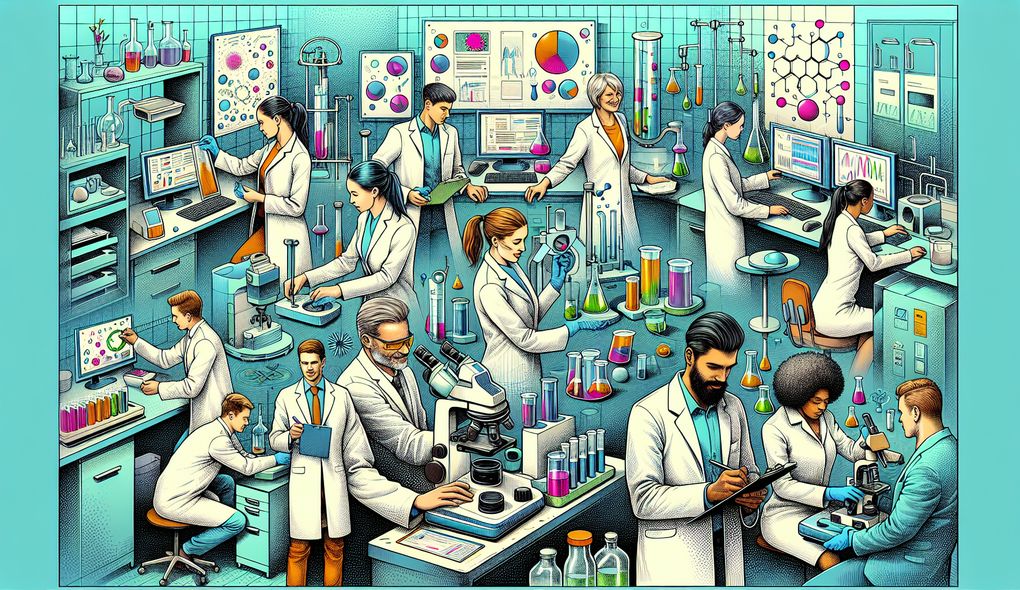How do you analyze and interpret data from environmental tests?
SENIOR LEVEL

Sample answer to the question:
When analyzing and interpreting data from environmental tests, I start by organizing the data into spreadsheets or databases for easier analysis. I then use statistical analysis software to identify trends and patterns in the data. I pay close attention to detail to ensure accurate interpretation of the results. Once I have analyzed the data, I create comprehensive reports summarizing the findings and provide recommendations for improvements. I also collaborate with cross-functional teams to discuss the implications of the data and make informed decisions. Additionally, I stay updated on environmental regulations and advancements in test technology to continually improve our testing processes.
Here is a more solid answer:
When it comes to analyzing and interpreting data from environmental tests, I have a comprehensive approach. Firstly, I carefully organize the data, ensuring that it is structured in a way that allows for easy manipulation and analysis. I then use statistical analysis software, such as JMP or Minitab, to identify trends, outliers, and correlations within the data. This helps me gain insights into the effects of various environmental factors on the tested products. Throughout this process, I pay meticulous attention to detail to avoid errors or misinterpretations. Once the analysis is complete, I create detailed reports that summarize the findings, including any significant observations, conclusions, and recommendations. These reports are tailored to the intended audience, whether it be engineering teams, management, or external stakeholders. I also believe in effective communication and collaboration, so I actively engage with cross-functional teams to discuss the implications of the data and identify potential improvements or opportunities. Lastly, I stay abreast of the latest advancements in environmental simulation software and data acquisition systems, continuously upgrading my skills and incorporating new techniques to enhance the accuracy and efficiency of the data analysis process.
Why is this a more solid answer?
The solid answer provides more details and specific examples of how the candidate approaches analyzing and interpreting data from environmental tests. It mentions the use of specific statistical analysis software, attention to detail, tailoring reports to the audience, active collaboration with cross-functional teams, and staying updated on advancements. However, it could still provide more specific examples of past experiences or projects to further strengthen the answer.
An example of a exceptional answer:
Analyzing and interpreting data from environmental tests is an area where I excel. To ensure accurate analysis, I begin by developing a detailed plan that outlines the key objectives and parameters of the test. This includes identifying the specific environmental factors to be tested, determining the appropriate sample size, and establishing statistical significance thresholds. During the test, I closely monitor the data acquisition process, meticulously documenting all relevant variables and ensuring proper calibration of equipment. Once the data is collected, I employ advanced statistical techniques, such as regression analysis or ANOVA, to identify any significant relationships or trends. I take great care to verify the validity of the results, employing appropriate measures to control for confounding factors or experimental biases. In interpreting the data, I am mindful of the broader context, considering any relevant industry benchmarks or regulatory requirements. This allows me to provide valuable insights to engineering teams and management, enabling informed decision-making. Moreover, I am adept at leveraging data visualization tools, such as Tableau or Power BI, to create visually compelling reports that effectively communicate the findings and recommendations. Additionally, I take an active role in continuously advancing my skills and knowledge in the field of environmental testing, attending conferences, and participating in industry forums to stay updated on the latest methodologies and best practices.
Why is this an exceptional answer?
The exceptional answer demonstrates a deep understanding and expertise in analyzing and interpreting data from environmental tests. It includes additional details on the planning stage, data acquisition process, advanced statistical techniques, consideration of industry benchmarks and regulatory requirements, data visualization, and continuous learning. It showcases the candidate's ability to ensure the validity and reliability of the results, as well as their commitment to staying at the forefront of the field. This answer goes above and beyond the basic requirements of the job and provides a strong indication of the candidate's capabilities.
How to prepare for this question:
- Familiarize yourself with different environmental testing methodologies and equipment, including their advantages and limitations.
- Gain hands-on experience with statistical analysis software commonly used in environmental testing, such as JMP or Minitab.
- Practice organizing and analyzing data from environmental tests, paying careful attention to detail.
- Develop your communication and presentation skills to effectively convey complex findings to different stakeholders.
- Stay updated on environmental regulations and advancements in test technology by reading industry publications and attending relevant conferences or webinars.
What are interviewers evaluating with this question?
- Expertise in environmental testing methodologies and equipment
- Proficiency in data analysis and interpretation with attention to detail
- Excellent communication and leadership abilities
- Problem-solving skills and capacity for strategic thinking
- Skilled in the use of environmental simulation software and data acquisition systems

